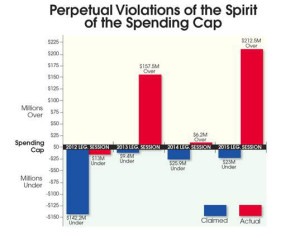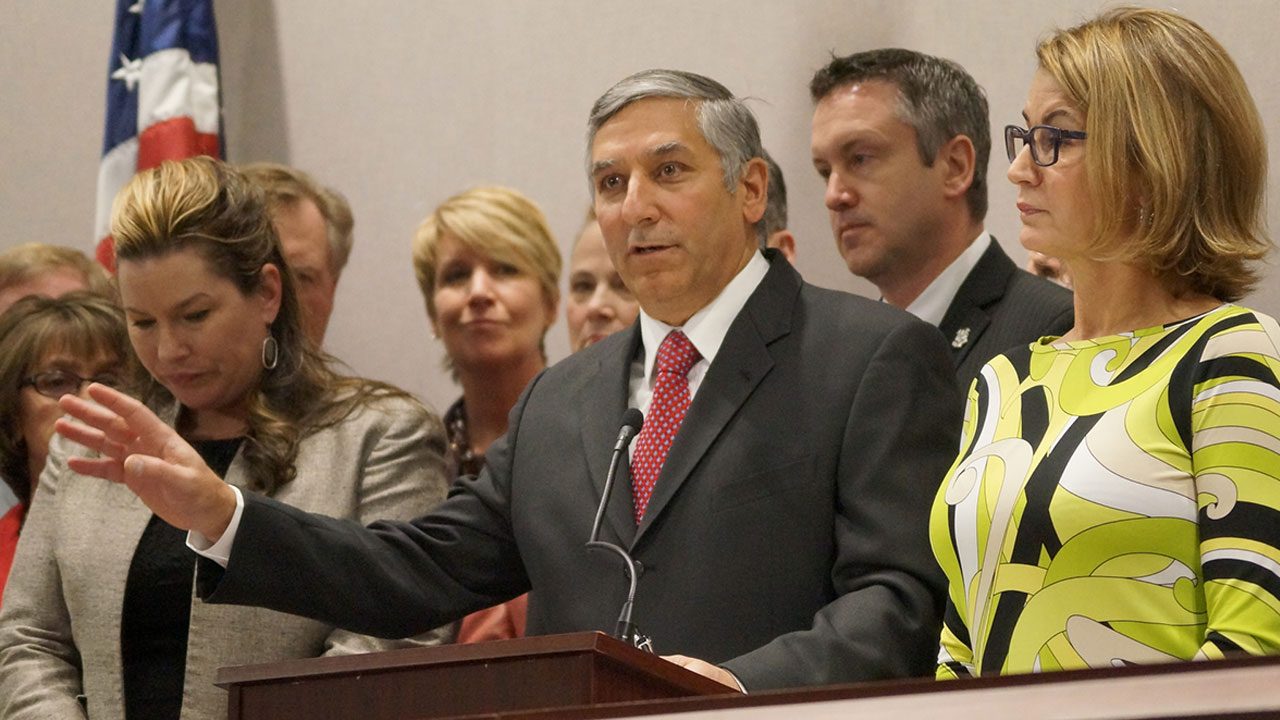Following an opinion released today by the Attorney General regarding the constitutional state spending cap, CT Senate Republican lawmakers commit to pursuing an enforceable cap during the 2016 legislative session.
Connecticut Senate Republicans are announcing their commitment to enacting an enforceable state spending cap in the upcoming legislative session following an opinion from the Attorney General, requested by Senate Republicans, released today.The opinion states that Connecticut’s current constitutional spending cap, which passed with overwhelming voter support in 1992, “has no legal effect” in its current form because lawmakers never adopted definitions to solidify the law in statute.
“For far too long we have watched lawmakers and state leaders completely disregard the intent of the constitutional spending cap. We’ve seen budgets passed the directly circumvent the cap. Senate Republicans asked the Attorney General for this opinion to clarify once and for all that the spending cap in its current form is insufficient and does not protect taxpayers. This new opinion shows that not only is the cap being disregarded, it’s also not enforceable. Enough is enough. Our state needs a strong spending cap, one that cannot be sidestepped. In the upcoming legislative session, our caucus is making it one of our top priorities to see a true spending cap finally enacted. For 23 years the voters who overwhelmingly supported the cap have been disrespected and their wishes ignored. It’s time to give the voters what they asked for, and take action to prevent future budget crises,” said Senate Minority Leader Len Fasano (R-North Haven).
The constitutional cap was proposed as part of the state’s income tax compromise in 1991. It was meant to assure people that the state would not engage in runaway spending after increasing taxes by over $1 billion with the passage of the income tax. Voters overwhelmingly approved the cap by a 4 to 1 margin in a 1992 ballot question.
Following voter ratification, the General Assembly was supposed to define by law the elements that contribute to the spending cap calculation, which involves factoring in a) “increases in personal income,” b)“increases in inflation” and c)“general budget expenditures.” The definitions for these three elements could not be enacted until they achieved support by a three-fifths vote of each house of the General Assembly. Definitions for these elements were never adopted by the General Assembly.
Without definitions, the constitutional amendment is futile, according to the Attorney General’s new opinion.
 “The cap was meant to be a promise that although the state was taking more from taxpayers, the state would be smarter and more controlled in its spending. It was a promise lawmakers needed to make to garner enough support to implement the controversial income tax. It was a promise that has been loosely adhered to and completely disregarded every time the majority refused to enact definitions,” said Senate Minority Leader Pro Tempore Kevin Witkos (R-Canton).
“The cap was meant to be a promise that although the state was taking more from taxpayers, the state would be smarter and more controlled in its spending. It was a promise lawmakers needed to make to garner enough support to implement the controversial income tax. It was a promise that has been loosely adhered to and completely disregarded every time the majority refused to enact definitions,” said Senate Minority Leader Pro Tempore Kevin Witkos (R-Canton).
Every year since 2007 Republicans have proposed legislation to adopt definitions needed to implement the spending cap. Democrats in the majority have either failed to call these proposals for a vote, or voted against them in the House or Senate.
“In the last four years, the cap has been challenged by moving expenses off the books and shifting money outside of the cap in times when Connecticut could not afford it,” said Witkos. “Just this year, the Democrats’ state budget moved major expenses outside of the cap enabling the limit to be exceeded by over $212 million.”
While Republican governors have also exceeded the spending cap in the past, they did so legally and transparently in times of surplus with permission granted by a legislative vote.
“No matter what has happened in the past, we have to look forward together. Republicans invite Democrats to join us in our efforts to do right by voters and implement a true spending cap. The Attorney General’s ruling makes it more evident now than ever before that the current spending cap is not what voters intended it to be. We are obligated to fix that. We are obligated to guard taxpayers from irresponsible spending. We are obligated to protect our state’s future,” said Fasano.
